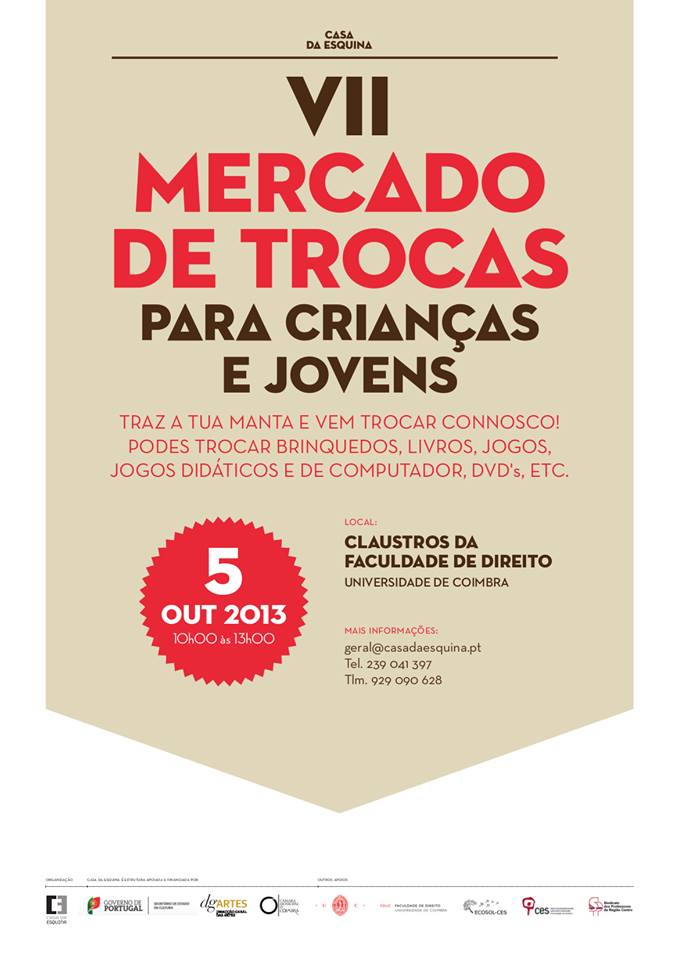Market
VII Trade Market for Children and Youth
October 5, 2013, 10h00-13h00
Cloisters of the Faculty of Law of the University of Coimbra
Abstract
The 7th Trade Market for Children and Young People is a project of Casa da Esquina, in collaboration with the CES Study Group on Solidarity Economy (ECOSOL/CES) and with the support of researchers from the Centre for Social Studies, which is now entering its third season.
The trade market for children - now extended to young people - has a political-pedagogical base, which is to loosen the exchanges of a capitalist model of assigning value, emphasizing the emergence of other ways of thinking the organization of economic life, in the family. In September 2011, the first edition of the Trade Market was organized, geared just for children. After three years, ten projects have emerged in ten other places in the country inspired by this market and a we have witnessed a growing number of families contributing to its achievement.
In the last year there have been some changes: the Market left the Botanical Garden and decided to circulate through the cultural heritage locations of the city of Coimbra. In its seventh edition, the Trade Market for Children and Youth will take place in the Cloisters of the Faculty of Law, as a tribute to the classification of Coimbra as a UNESCO world heritage site.
What is the Trade Market for Children and Youth?
This experiment seeks to stimulate the detachment of children and young people concerning toys and miscellaneous consumer goods (clothing, accessories, technological devices etc.), disfranchising the sense of fun pertaining to the purchase new objects constantly. The trade market also proposes a reflection on the dominant representations in capitalist consumption, while developing a sense of solidarity sharing, questioning the accumulation and concentration already witnessed as alarming re children and youth consumer habits. Thus, the trade market for Children and Youth rebates the dominant idea that only new things have value and can entertain, motivating a broader life cycle for toys, games, books and other goods put into circulation by children and young people participating in the initiative.
Adopting a social currency called garden, not anchored in the euro, reinforces the playful and solidary nature of the experience: not only extendting the conditions of exchange between participants with very different products, but also reconstructing the value of things as a sense particularly attributed by children and young people, against the exchange value established by the market. During the Trade Market for Children and Youth, the euro cannot be used. All exchanges are mediated by the social currency garden.
To participate, simply bring one or more toys (in good condition) and a blanket for exposure.
The Casa da Esquina, with the support of the CES Study Group on Solidarity Economy (ECOSOL/CES), is responsible for organizing the seventh edition of the trade market for children and youth.

